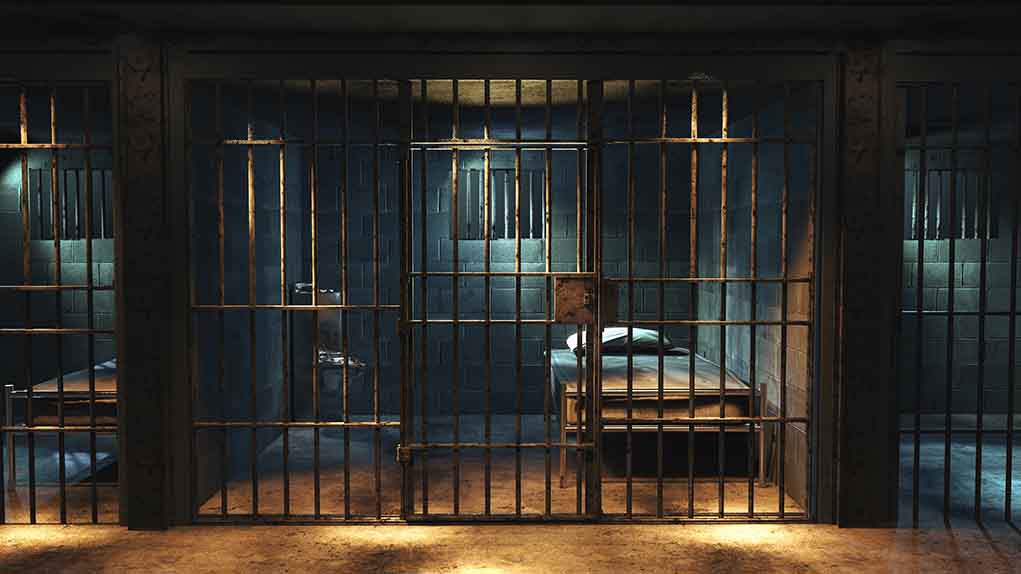
Rikers Island reaches a tragic milestone as two inmates die on the same day, pushing the facility’s 2025 death toll to seven—already surpassing last year’s total as calls for federal takeover intensify.
Key Takeaways
- Two inmates—Benjamin Kelly, 37, and James Maldonado, 56—died within an hour of each other on Friday, marking the sixth and seventh Rikers-related deaths this year
- These fatalities have intensified demands for Rikers Island to be placed under federal receivership, removing control from Mayor Eric Adams’ administration
- Rikers Island’s inmate population has swelled to over 7,000, up from 4,000 in 2020, further straining an already troubled facility
- Despite being under federal supervision since 2015, conditions at Rikers continue to deteriorate, with a federal judge recently appointing a remediation manager
- An independent commission has reported the city is unlikely to meet its 2027 deadline to shut down the jail complex
Twin Tragedies Highlight Ongoing Crisis
Two prisoners died on Friday in separate incidents at Rikers Island, dealing another blow to the troubled New York City jail complex. The first victim, Benjamin Kelly, 37, was found in medical distress at the Eric M. Taylor Center and pronounced dead shortly afterward despite staff intervention. Details about the nature of Kelly’s medical emergency were not disclosed by corrections officials. Within the same hour, James Maldonado, 56, suffered a fatal medical incident while on a Department of Correction bus en route to Rikers Island after being discharged from a hospital. Both deaths occurred in quick succession, raising serious questions about medical care and emergency response protocols at the facility.
“The life of every single person in our care is valued and Friday was profoundly tragic for the department as two individuals lost their lives,” said NYC Correction Commissioner Lynelle Maginley-Liddie.
The Department of Correction has announced investigations into both deaths, with the medical examiner set to determine official causes. These latest fatalities bring the total number of Rikers-related deaths to seven in 2025, already exceeding the five deaths recorded throughout all of 2024. The growing death toll underscores the persistent dangerous conditions at the facility, which has been under federal monitoring for nearly a decade with little apparent improvement. The tragic pattern continues despite repeated promises of reform from city officials who have consistently failed to address the systemic issues plaguing the complex.
Federal Oversight Failing to Stem Crisis
Rikers Island has been under federal supervision since 2015, yet conditions continue to deteriorate at an alarming rate. The recent deaths have amplified calls from prisoner advocates and legal organizations for the facility to be placed under receivership, which would remove control from Mayor Eric Adams’ administration and transfer authority to federally appointed officials. This push comes after years of documented violence, neglect, and mismanagement that have persisted despite external oversight. A federal judge recently appointed a remediation manager to address the ongoing problems, signaling growing judicial concern about the city’s inability to implement meaningful reforms.
“Our deepest sympathies are with their loved ones. These incidents will be investigated thoroughly,” said Corrections Commissioner Lynelle Maginley-Liddle.
The jail’s population has swelled dramatically in recent years, growing from approximately 4,000 inmates in 2020 to over 7,000 today. This significant increase has strained an already overburdened facility, exacerbating issues related to staffing, medical care, and security. Corrections officers frequently report being overwhelmed, while medical services struggle to meet the needs of the growing inmate population. The combination of overcrowding and inadequate resources has created dangerous conditions that directly contribute to preventable deaths and injuries, while taxpayers foot the bill for both the facility’s operations and the growing liability from lawsuits.
Closure Plans in Jeopardy
An independent commission recently reported that New York City is unlikely to meet its 2027 deadline to shut down the Rikers Island complex, further prolonging the crisis. The planned closure, announced under former Mayor Bill de Blasio’s administration, aimed to replace the centralized facility with smaller, borough-based jails. However, construction delays, budget constraints, and political resistance have impeded progress toward this goal. With the closure timeline now in doubt, inmates and staff face the prospect of years more in a facility that has repeatedly proven incapable of providing safe conditions or adequate care, raising constitutional concerns about cruel and unusual punishment.
The city’s failure to address the emergency at Rikers Island represents a significant public policy failure with real human costs. Despite years of investigations, court orders, and public commitments to reform, inmates continue to die under preventable circumstances. The persistent inability of Democrat-led city administrations to effectively manage the facility raises serious questions about governance priorities and competence. As investigations into these latest deaths proceed, the families of Benjamin Kelly and James Maldonado join a growing list of those seeking answers and accountability from a corrections system that continues to demonstrate fatal negligence despite being one of the most expensive prison systems in America.











